
The Tranquil Charm of Tingaki, Kos
Nestled on the northern coast of Kos, Tingaki is a serene seaside village that offers a perfect blend of natural beauty and relaxed ambiance. Known for its long stretch of pristine sandy beaches, Tingaki is a paradise for those looking to unwind and soak up the Mediterranean sun. The clear, shallow waters make it an ideal spot for families and those who enjoy a leisurely swim. Beyond the beach, Tingaki is rich in local culture and tradition. Stroll through the village to find quaint tavernas serving delicious Greek cuisine, from fresh seafood to homemade moussaka. The friendly locals add to the village's charm, making you feel welcome and at home. Don't miss the chance to try local wines and olive oils, which are a testament to the region's agricultural heritage. For the more adventurous, Tingaki offers various activities such as windsurfing, cycling, and hiking. The nearby salt lake, Alikes, is a haven for birdwatchers, especially during the migration season. As the sun sets, the village transforms into a romantic setting, with beachside bars offering the perfect spot to enjoy a cocktail while watching the sunset over the Aegean Sea.
Local tips in Tingaki
- Visit the beach early in the morning to secure the best spot and enjoy the peaceful atmosphere before it gets crowded.
- Rent a bicycle to explore the flat and scenic paths around Tingaki and the nearby salt lake.
- Don't forget to bring binoculars if you're interested in birdwatching at Alikes salt lake.
- Try the local wines and olive oils at the village markets and tavernas for an authentic taste of Tingaki.
- Keep some cash on hand as not all small shops and tavernas accept credit cards.
The Tranquil Charm of Tingaki, Kos
Nestled on the northern coast of Kos, Tingaki is a serene seaside village that offers a perfect blend of natural beauty and relaxed ambiance. Known for its long stretch of pristine sandy beaches, Tingaki is a paradise for those looking to unwind and soak up the Mediterranean sun. The clear, shallow waters make it an ideal spot for families and those who enjoy a leisurely swim. Beyond the beach, Tingaki is rich in local culture and tradition. Stroll through the village to find quaint tavernas serving delicious Greek cuisine, from fresh seafood to homemade moussaka. The friendly locals add to the village's charm, making you feel welcome and at home. Don't miss the chance to try local wines and olive oils, which are a testament to the region's agricultural heritage. For the more adventurous, Tingaki offers various activities such as windsurfing, cycling, and hiking. The nearby salt lake, Alikes, is a haven for birdwatchers, especially during the migration season. As the sun sets, the village transforms into a romantic setting, with beachside bars offering the perfect spot to enjoy a cocktail while watching the sunset over the Aegean Sea.
Iconic landmarks you can’t miss
king size beach bar
Experience the best of Tigaki beach life at King Size Beach Bar: sun, service, and vibrant vibes on the beautiful Kos coastline.
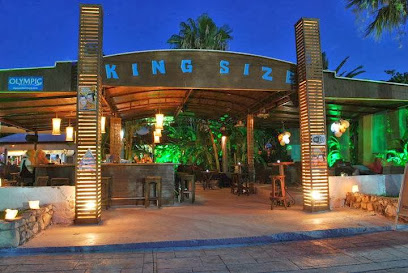
Taverne Plori
Experience authentic Greek flavors at Taverne Plori in Tigaki, Kos. Fresh seafood, traditional cuisine, and a warm atmosphere await!
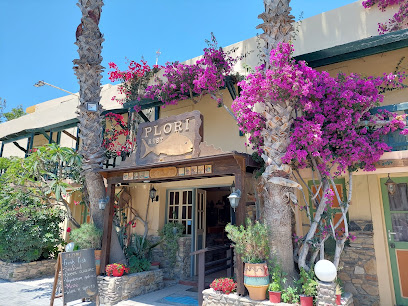
Taverna Nisiotiko
Experience authentic Greek island flavors at Taverna Nisiotiko in Tigaki, Kos. Fresh seafood, traditional recipes, and a warm, inviting atmosphere.
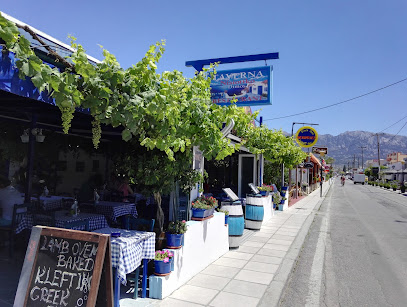
Artemis Hamam, Massage & Spa
Experience traditional Turkish relaxation at Artemis Hamam in Tigaki, Kos. Rejuvenate your body and mind with unique spa treatments.
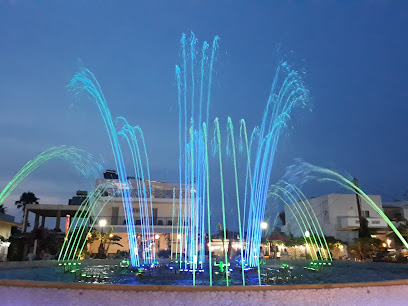
Happy Flamingo Beach
Experience a blissful beach day at Happy Flamingo Beach in Tigaki, Kos, with its clear waters, soft sands, and top-notch amenities.
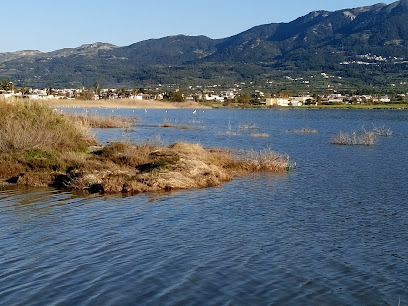
memories Bar
Experience the vibrant nightlife of Tigaki at Memories Bar, offering a wide selection of drinks and a lively atmosphere until the early hours.
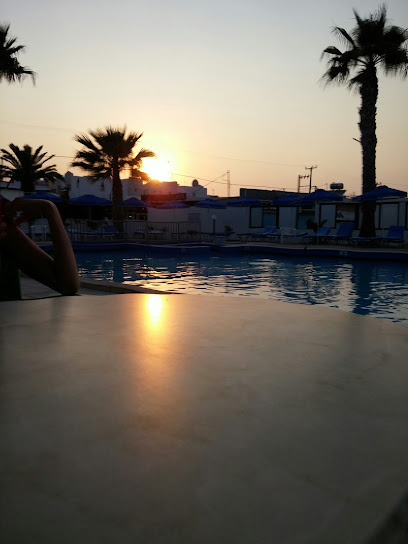
Palapanis
Indulge in delightful cakes, pastries, and crepes at Palapanis, Tigaki's favorite cafe and bakery, a sweet escape you won't want to miss!
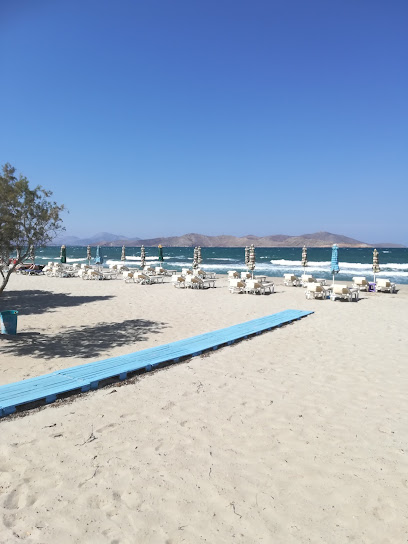
Barracuda Beach
Relax and unwind at Barracuda Beach in Tigkaki, Kos – your perfect escape for sun, sea, and serene beachside bliss.
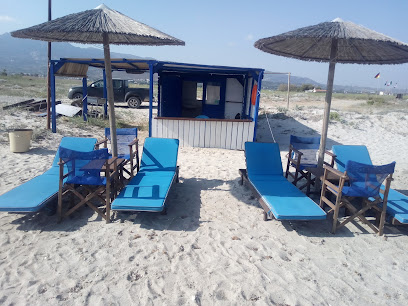
Aspros Mylos
Experience authentic Greek cuisine and warm hospitality at Aspros Mylos restaurant in Tigaki, Kos. A family-friendly dining experience.
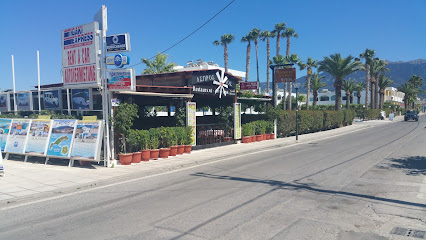
Vangelis Beach
Discover tranquility at Vangelis Beach in Tigaki, Kos: a serene escape with calm waters and scenic beauty.
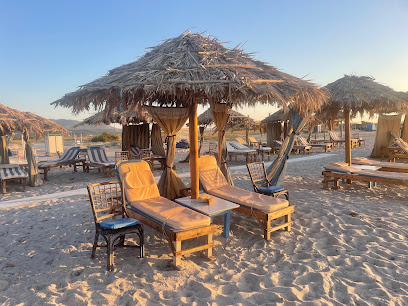
Fivos & Athena
Enjoy authentic Greek fast food at Fivos & Athena in Tigaki, Kos – a local favorite for gyros, souvlaki, and more!
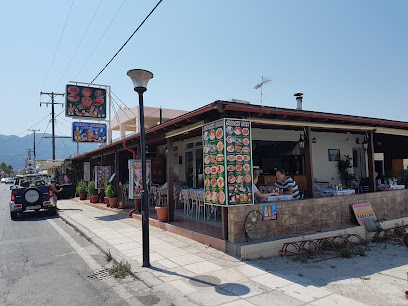
Molon Labe
Enjoy authentic Greek flavors at Molon Labe in Tigaki, Kos. Experience traditional cuisine in a relaxed, family-friendly setting.
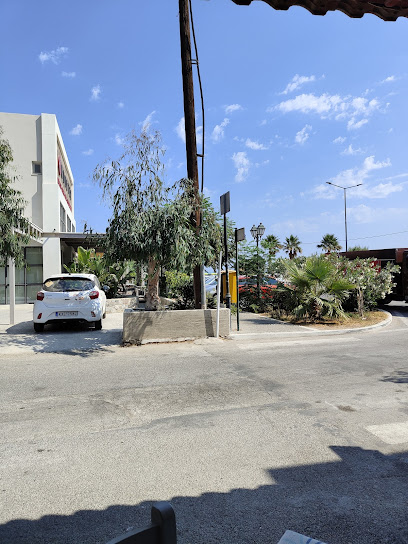
Ifestos
Enjoy authentic Greek flavors at Ifestos in Tigaki, Kos. Experience traditional cuisine in a welcoming, family-friendly atmosphere.
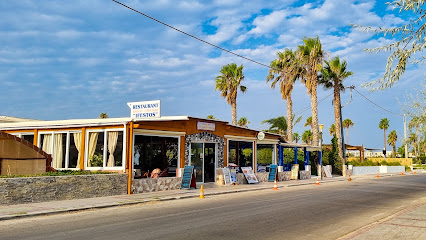
ΓΙΑΝΝΟΥΛΗΣ ΣΤΕΦΑΝΟΣ
Discover the stunning landscapes of Kos Island with expert car rentals and guided tours in Tigaki, ensuring an unforgettable adventure in Greece.
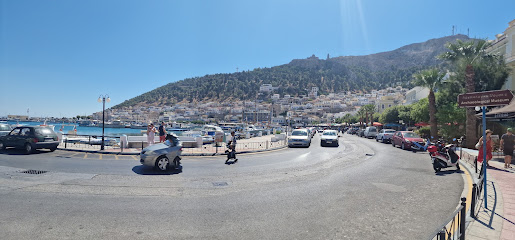
Tingaki Bay S.A.
Relaxing Kos hotel near sandy beaches, perfect for exploring local culture and natural wonders.
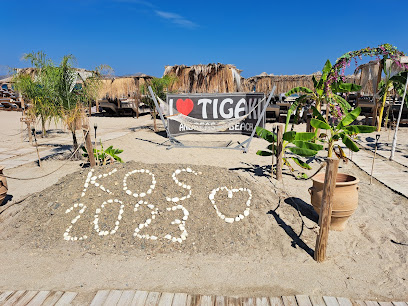
Unmissable attractions to see
Traditional House of Pyli
Discover the rich cultural heritage of the Dodecanese at the Traditional House of Pyli, a charming museum showcasing local history and architecture.
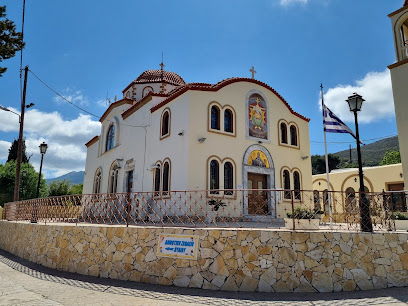
Urocza Kapliczka
Discover the tranquil beauty of Urocza Kapliczka in Tigaki, a stunning chapel that embodies the rich cultural heritage of Greece.
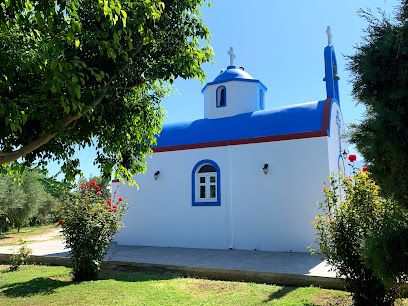
Ναυάγιο γερμανικού αποβατικού σκάφους
Explore the stunning Navagio Beach in Zakynthos, Greece, home to the iconic shipwreck and breathtaking turquoise waters, a paradise for every traveler.
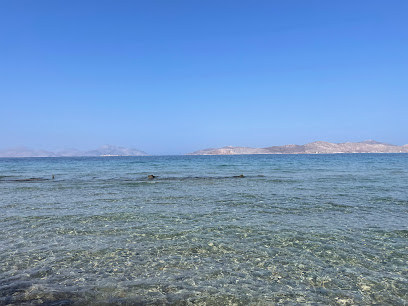
Sandy Beach
Discover the tranquil beauty of Sandy Beach in Kos, Greece, where golden sands meet crystal-clear waters for the ultimate Mediterranean escape.
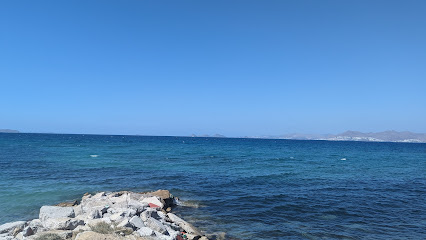
Πηγή Ιπποκράτη
Explore the historical significance and natural beauty of Πηγή Ιπποκράτη, a serene escape in the heart of Kos, Greece.
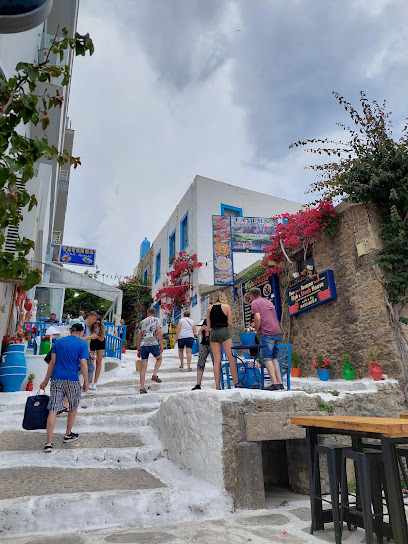
Plage Gratuite KES
Experience the tranquil beauty of Plage Gratuite KES in Dikeo, Greece, where pristine sands meet crystal-clear waters for the ultimate beach getaway.
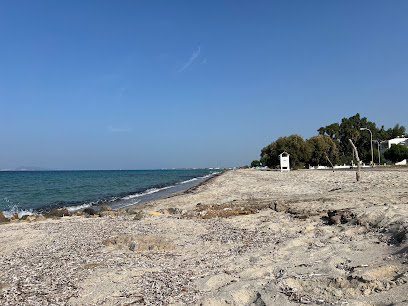
Essential places to dine
Taverne Plori
Experience authentic Greek flavors at Taverne Plori in Tigaki - where every meal tells a story.
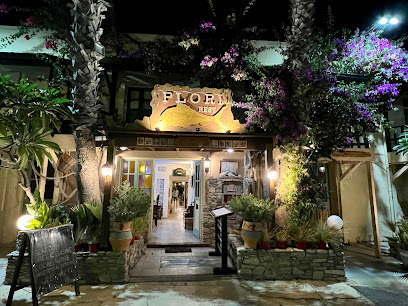
IKAROS Restaurant
Experience the true flavors of Greece at IKAROS Restaurant in Tigaki – where delicious cuisine meets warm hospitality.
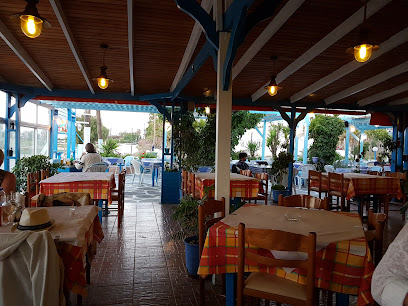
Aliada
Experience authentic Greek cuisine at Aliada in Tigaki – where fresh ingredients meet warm hospitality.
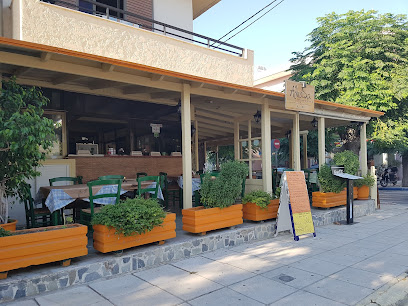
Taverna Nisiotiko
Discover the authentic flavors of Greece at Taverna Nisiotiko in Tigaki—where tradition meets taste in every dish.
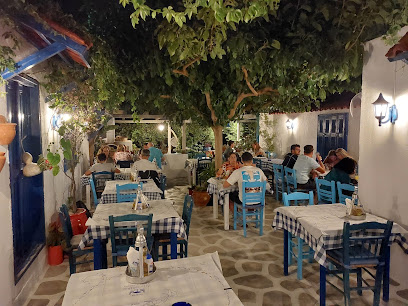
Esperos
Experience authentic Greek cuisine at Esperos Restaurant in Tigaki – where every dish is a celebration of Mediterranean flavors.
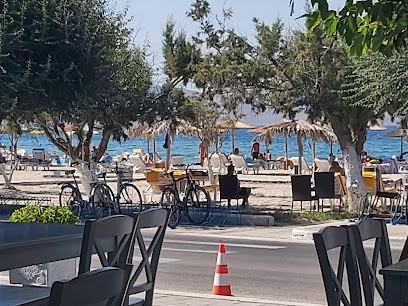
Sagittarius Restaurant
Experience culinary diversity at Sagittarius Restaurant in Tigkaki – where Greek meets Indian and Italian flavors for an unforgettable meal.
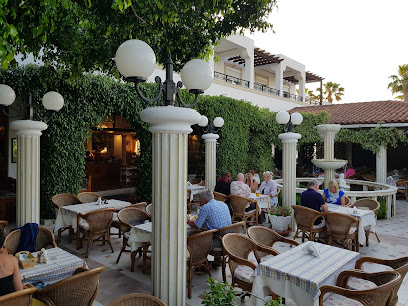
Aspros Mylos
Discover authentic Greek flavors at Aspros Mylos in Tigaki, where delightful dishes meet breathtaking views in a warm and inviting atmosphere.
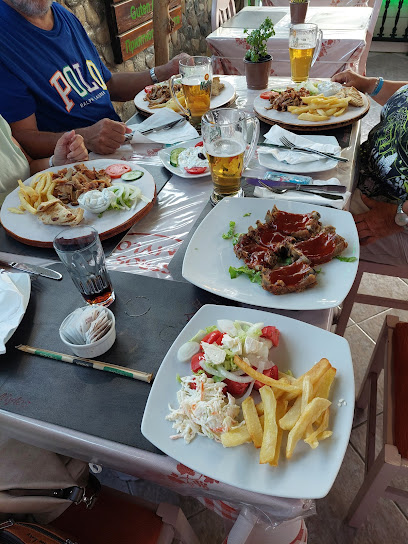
Rooster Beach Bar Restaurant
Experience the perfect blend of delicious cuisine and stunning beachfront views at Rooster Beach Bar Restaurant in Tigaki.
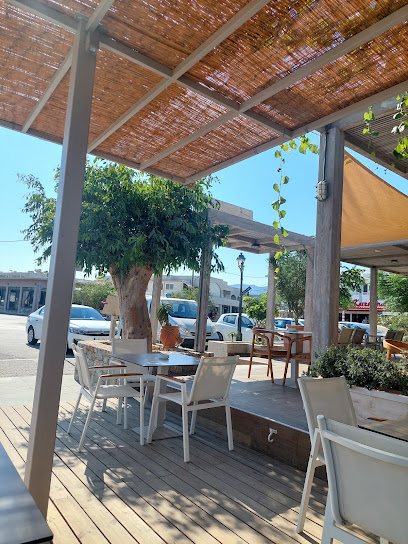
Ifestos
Discover Ifestos in Tigaki: A culinary gem offering authentic Greek flavors and warm hospitality.
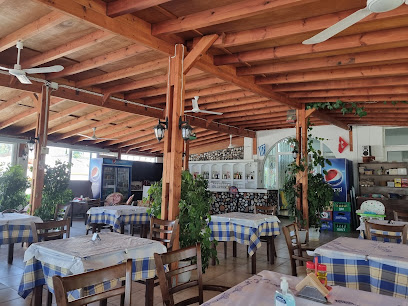
Brusko Restaurant
Experience the flavors of Greece at Brusko Restaurant in Tigaki - where tradition meets taste in every dish.
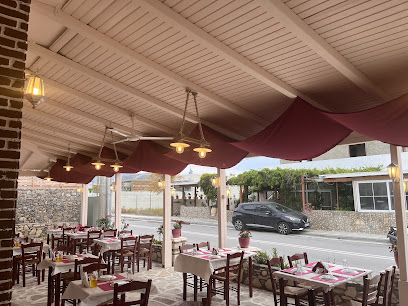
Markets, malls and hidden boutiques
Kōnstantínos
Discover Kōnstantínos in Tigaki, your go-to supermarket for groceries, local delicacies, and souvenirs in beautiful Greece.
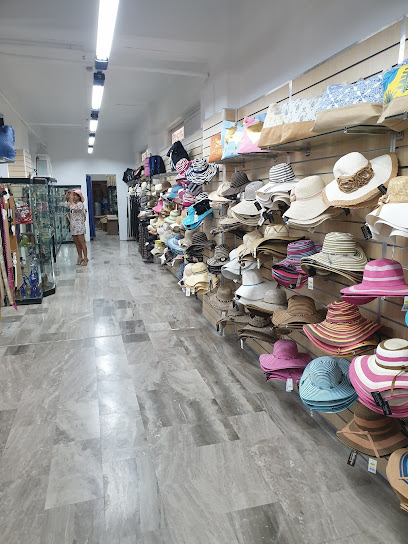
Bakery Shop Gianniotiko
Experience the sweet delights of Greece at Bakery Shop Gianniotiko in Tigaki, where every pastry tells a delicious story.
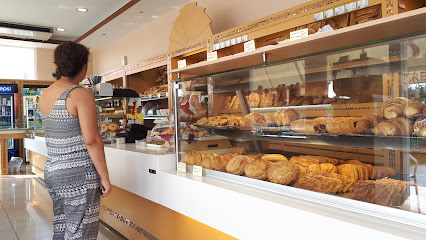
Katras Mart
Explore the vibrant offerings of Katras Mart, the premier hypermarket in Tigkaki, Greece, where local flavors meet convenience.
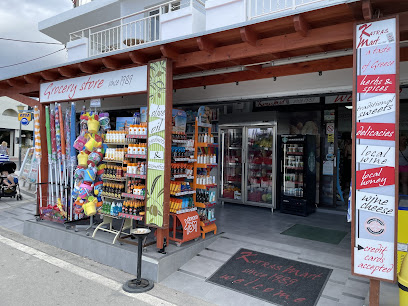
the olive market
Explore the best of Greek culture at The Olive Market in Tigkaki, where authentic products and friendly service create a unique shopping experience.
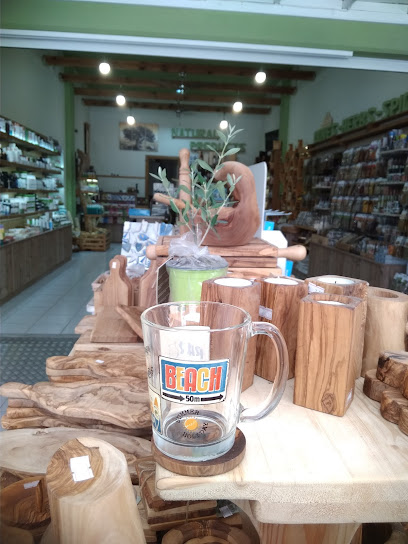
Mandala Handmade Jewelry
Explore the exquisite handmade jewelry at Mandala in Tigkaki, where local artistry meets unique craftsmanship for the perfect souvenir.
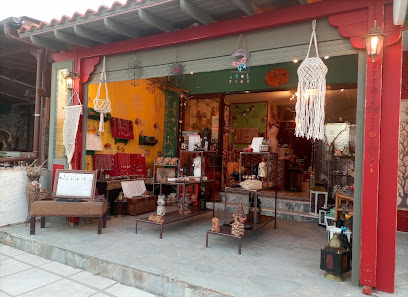
Hatzigiakoumis, K., S.A.
Explore Hatzigiakoumis in Tigkaki for an authentic shopping experience, showcasing local treasures and unique Greek craftsmanship.
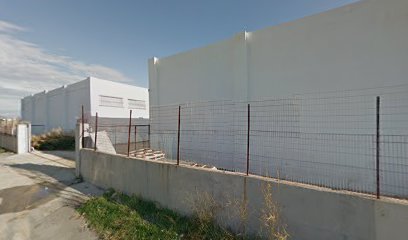
Fruits, oil and honey self-made.
Explore the authentic flavors of Greece with self-made fruits, oils, and honey in the charming Tigaki grocery store.
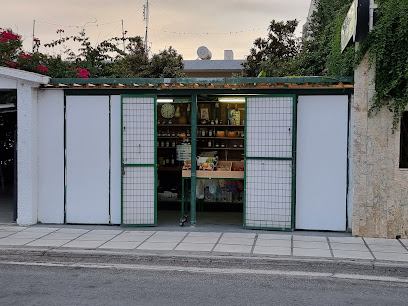
pandrosia Kos Showroom
Discover the unique beauty of Kos at the Pandrosia Kos Showroom, where local craftsmanship meets quality cosmetics for an unforgettable shopping experience.
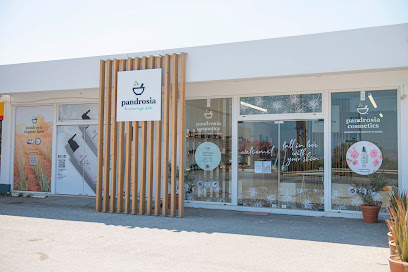
Julia's Market
Discover the vibrant flavors of Greece at Julia's Market in Tigaki, where fresh produce and local delicacies await every traveler.
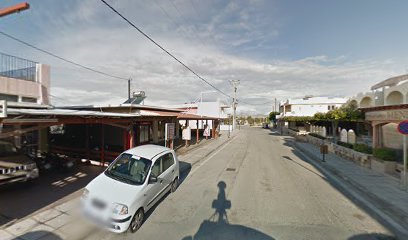
tigaki
Discover unique local treasures and traditional crafts at Tigaki, an enchanting store in Dikeo, Greece, perfect for memorable souvenirs.
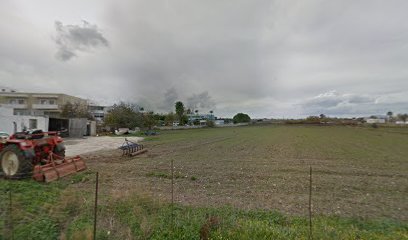
Essential bars & hidden hideouts
king size beach bar
Experience the vibrant atmosphere and delicious flavors of King Size Beach Bar in Tigaki, a must-visit destination for beach lovers and families alike.
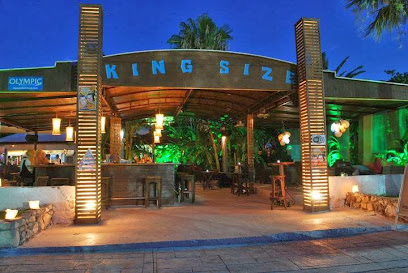
memories Bar
Experience the vibrant nightlife of Tigaki at Memories Bar, where friendly vibes and refreshing drinks await every visitor.
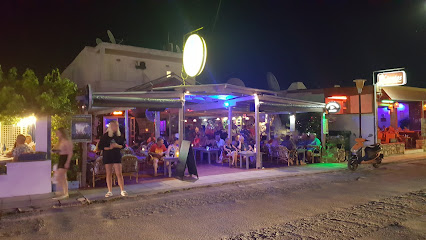
MASCOTTE Bar & Nightclub
Experience the vibrant nightlife at MASCOTTE Bar & Nightclub in Tigkaki, Kos, known for its cocktails, dynamic DJs, and unforgettable parties.
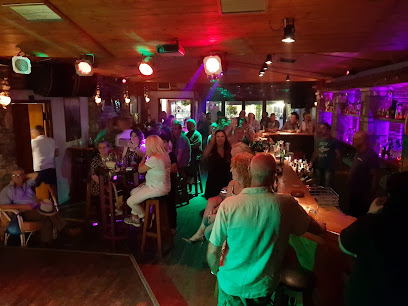
Karma
Discover the vibrant atmosphere of Karma Bar in Tigaki, where delightful drinks, friendly service, and unforgettable memories await you.
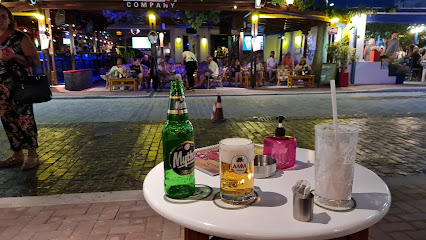
Rooster Beach Bar Restaurant
Experience the vibrant atmosphere and stunning views at Rooster Beach Bar Restaurant in Tigaki, where delicious Greek cuisine meets beachside relaxation.
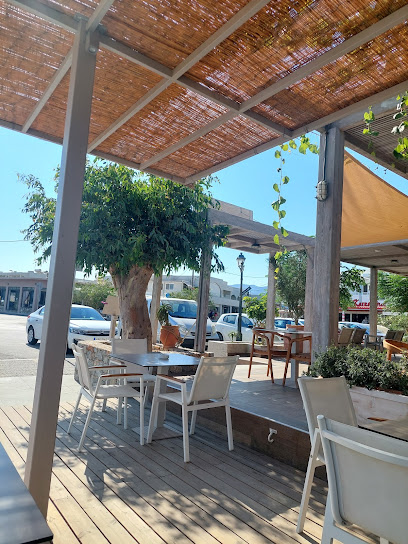
The Cosy Company
Experience the warmth and charm of The Cosy Company, a delightful bar in Tigaki perfect for relaxation and socializing with locals and travelers alike.
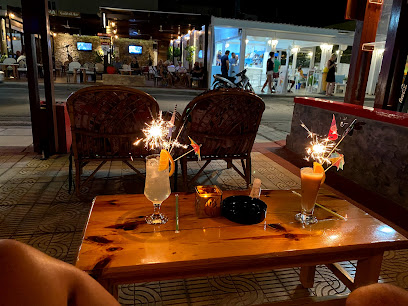
Captain Cook Bar
Discover the vibrant atmosphere of Captain Cook Bar in Tigkaki, where refreshing drinks and live music create the perfect island escape.
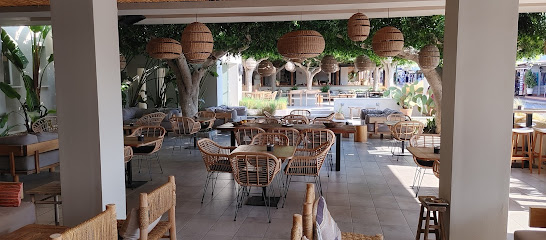
Booze brothers bar
Experience the vibrant nightlife at Booze Brothers Bar in Tigaki, where delicious drinks and a lively atmosphere await every visitor.
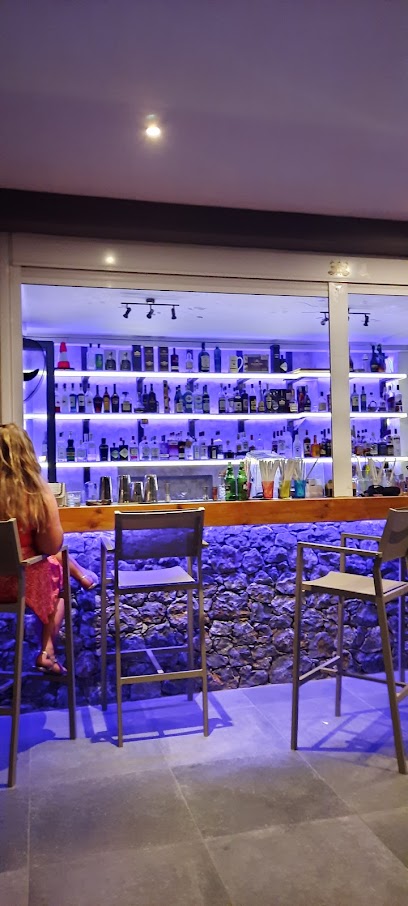
Tigaki Fountain Show
Discover the magical Tigaki Fountain Show: an unforgettable blend of music, light, and water in the heart of Greece's enchanting Tigaki.
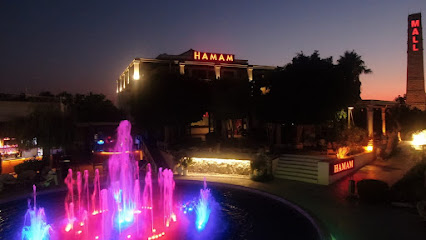
Taverna Sunshine
Discover the flavors of Greece at Taverna Sunshine, a charming bar and restaurant in Tigaki offering delightful cuisine and stunning beach views.
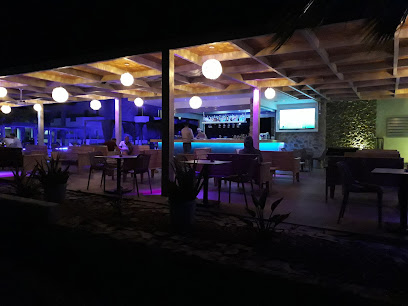
Local Phrases
-
- HelloΓεια σας
[Ya sas] - GoodbyeΑντίο
[Adio] - YesΝαι
[Ne] - NoΌχι
[Ohi] - Please/You're welcomeΠαρακαλώ
[Parakalo] - Thank youΕυχαριστώ
[Efharisto] - Excuse me/SorryΣυγγνώμη
[Signomi] - How are you?Τι κάνετε;
[Ti kanete?] - Fine. And you?Καλά. Εσείς;
[Kala. Esis?] - Do you speak English?Μιλάτε αγγλικά;
[Milate anglika?] - I don't understandΔεν καταλαβαίνω
[Den katalaveno]
- HelloΓεια σας
-
- I'd like to see the menu, pleaseΘα ήθελα να δω το μενού, παρακαλώ
[Tha ithela na do to menu, parakalo] - I don't eat meatΔεν τρώω κρέας
[Den troo kreas] - Cheers!ΥΓΕΙΑ!
[Yia] - I would like to pay, pleaseΘα ήθελα να πληρώσω, παρακαλώ
[Tha ithela na plirosso, parakalo]
- I'd like to see the menu, pleaseΘα ήθελα να δω το μενού, παρακαλώ
-
- Help!Βοήθεια!
[Voithia!] - Go away!Φύγετε!
[Figete!] - Call the Police!Καλέστε την αστυνομία!
[Kaleste tin astinomia!] - Call a doctor!Καλέστε έναν γιατρό!
[Kaleste enan yatro!] - I'm lostΈχω χαθεί
[Eho hathi] - I'm illΕίμαι άρρωστος
[Ime arrostos]
- Help!Βοήθεια!
-
- I'd like to buy...Θα ήθελα να αγοράσω...
[Tha ithela na agoraso] - I'm just lookingΑπλά κοιτάω
[Apla kitao] - How much is it?Πόσο κοστίζει;
[Poso kostizi?] - That's too expensiveΑυτό είναι πολύ ακριβό
[Afto ine poli akribo] - Can you lower the price?Μπορείτε να κατεβάσετε την τιμή;
[Borite na katevasete tin timi?]
- I'd like to buy...Θα ήθελα να αγοράσω...
-
- What time is it?Τι ώρα είναι;
[Ti ora ine?] - It's one o'clockΕίναι μία ώρα
[Ine mia ora] - Half past (10)Μισή (10)
[Misi (10)] - MorningΠρωί
[Proi] - AfternoonΑπόγευμα
[Apoyevma] - EveningΒράδυ
[Vradi] - YesterdayΧθες
[Hthes] - TodayΣήμερα
[Simera] - TomorrowΑύριο
[Avrio] - 1Ένα
[Ena] - 2Δύο
[Dio] - 3Τρία
[Tria] - 4Τέσσερα
[Tessera] - 5Πέντε
[Pente] - 6Έξι
[Exi] - 7Επτά
[Epta] - 8Οκτώ
[Okto] - 9Εννιά
[Ennia] - 10Δέκα
[Deka]
- What time is it?Τι ώρα είναι;
-
- Where's a/the...?Πού είναι ένα/το...;
[Pou ine ena/to...?] - What's the address?Ποια είναι η διεύθυνση;
[Pia ine i diefthinsi?] - Can you show me (on the map)?Μπορείτε να μου δείξετε (στο χάρτη);
[Borite na mou dixete (sto charti)?] - When's the next (bus)?Πότε είναι το επόμενο (λεωφορείο);
[Pote ine to epomeno (leoforeio)?] - A ticket (to ....)Ένα εισιτήριο (για το ...);
[Ena isitirio (ya to ...)?]
- Where's a/the...?Πού είναι ένα/το...;
History of Tingaki
-
Tingaki's history can be traced back to ancient Greek times, with its proximity to the capital of Kos, which was known for its rich cultural and intellectual heritage. The island of Kos itself was a significant center for the Hippocratic school of medicine, and while Tingaki may not have been a major urban center, it likely served as a coastal settlement supporting trade and fishing activities that were vital to the island's economy.
-
During the Roman era, Kos flourished as an important port and cultural hub. Tingaki, benefiting from the island's strategic maritime position, would have seen increased trade and interaction with other regions of the Mediterranean. The remnants of Roman villas and structures around Tingaki indicate the area's development during this time, showcasing the architectural styles and cultural influences of the period.
-
In the Byzantine period, Kos, including Tingaki, shifted towards agriculture, with the cultivation of crops such as olives and grapes becoming prevalent. The decline of urban centers led to a more agrarian lifestyle, and the fertile lands surrounding Tingaki were utilized for farming. This era saw the establishment of small churches and monasteries, reflecting the region's Christian heritage.
-
The Ottoman Empire's control over Kos from the 16th century brought significant cultural and architectural changes to Tingaki. The introduction of new agricultural practices and crops, including tobacco and cotton, transformed the local economy. The influence of Ottoman architecture can still be seen in the region, with mosques and public buildings contributing to a rich tapestry of cultural exchange.
-
In the 20th century, particularly post-World War II, Tingaki began to develop as a tourist destination, leveraging its beautiful beaches and natural landscapes. The influx of visitors has led to the establishment of numerous hotels, restaurants, and recreational facilities. This modern era has seen Tingaki embrace its historical roots while catering to the needs of tourists, making it a blend of the old and new, reflecting the broader transformation of Kos as a popular travel destination.
Tingaki Essentials
-
Tingaki is located approximately 12 kilometers from Kos Town and can be easily accessed by bus, taxi, or rental car. The local bus service operates regularly between Kos Town and Tingaki, with a journey time of around 20-30 minutes. Taxis are available and provide a quicker, though more expensive, option. For those arriving by ferry, you can take a taxi or bus from the port to reach Tingaki.
-
Tingaki is a compact area that is best explored on foot or by bicycle. Many hotels offer bicycle rentals, allowing you to enjoy the scenic views along the coastline. Public buses connect Tingaki to nearby attractions and towns; however, they may have limited schedules, especially in the off-peak season. Taxis are also available for longer distances or late-night transport.
-
Tingaki is generally a safe neighbourhood for tourists. Petty crime, such as pickpocketing, can occur in crowded areas, so it is advisable to keep your belongings secure. There are no specific high-crime areas targeting tourists. However, it is wise to avoid deserted areas at night and remain vigilant.
-
In case of emergency, dial 112 for police, fire, or medical assistance. The nearest hospital is located in Kos Town, approximately 15 minutes away by taxi. It's recommended to have travel insurance to cover medical emergencies. Pharmacies are available in Tingaki for minor health issues, and many have English-speaking staff.
-
Fashion: Do wear light and breathable clothing suitable for the warm climate; however, be modest when visiting religious sites. Religion: Do respect local customs, particularly in churches; avoid loud behavior in these spaces. Public Transport: Do be polite and offer your seat to elderly passengers. Don't eat or drink on public buses. Greetings: Do greet locals with a friendly 'Kalimera' (Good morning). Eating & Drinking: Do try local dishes and enjoy meals at outdoor taverns. Don't waste food; it's considered disrespectful.
-
To experience Tingaki like a local, visit the beach early in the morning to enjoy the quiet and peaceful atmosphere before crowds arrive. Try to engage with local fishermen at the beach as they often have stories and tips on the best catch of the day. Don’t miss out on the local tavernas that serve traditional Greek dishes, and be sure to sample the fresh seafood. Joining in local festivals and events can also provide a deeper understanding of the culture.
Nearby Cities to Tingaki
-
Things To Do in Bodrum
-
Things To Do in Marmaris
-
Things To Do in Samos
-
Things To Do in Rhodes
-
Things To Do in Kusadasi
-
Things To Do in Ephesus
-
Things To Do in Santorini
-
Things To Do in Pyrgos
-
Things To Do in Izmir
-
Things To Do in Mykonos
-
Things To Do in Fethiye
-
Things To Do in Pamukkale
-
Things To Do in Heraklion
-
Things To Do in Crete
-
Things To Do in Rethymno










